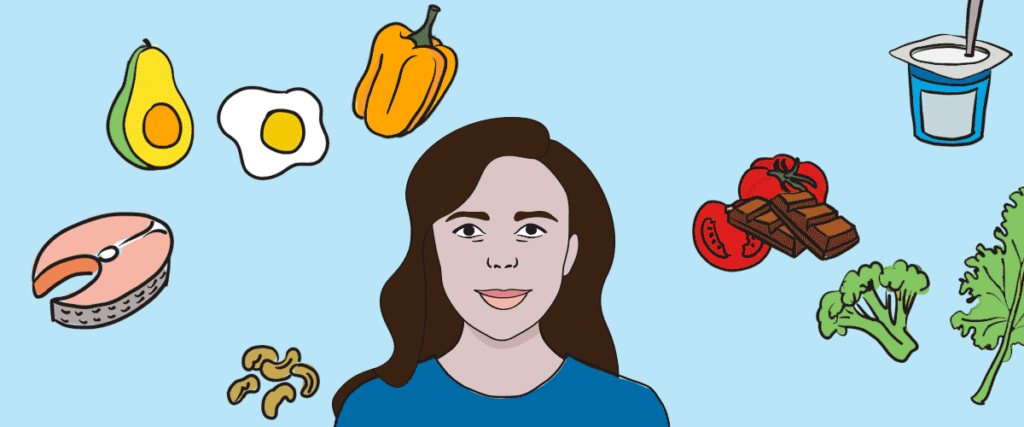
Protein is the building block of life. From repairing tissues to producing hormones and enzymes, protein plays a crucial role in nearly every bodily function. But how much protein do we really need, and what are the best sources?
The Role of Protein in the Body
Protein’s importance stems from its multifunctional role. It helps build and repair muscles, supports the immune system, and acts as an energy source when carbohydrates and fats are insufficient.
Additionally, proteins form enzymes and hormones that regulate bodily functions like digestion and metabolism.
Did you know that your hair, skin, and nails are mostly made of keratin, a type of protein? Without sufficient protein, these structures weaken, showcasing the macronutrient’s significance beyond internal health.
How Much Protein Do You Really Need?
The amount of protein needed varies by individual. According to the studies, the RDA for protein is approximately 0.8 grams per kilogram of body weight. However, this is a baseline, not a one-size-fits-all recommendation.
- Active Individuals: People who engage in regular exercise may need up to 1.2–2.0 grams of protein per kilogram of body weight.
- Older Adults: To counteract muscle loss, seniors may require slightly more than the standard RDA.
- Pregnant and Lactating Women: Increased protein intake supports the growth of the fetus and milk production.
Myth: “More protein equals more muscle.”
Fact: Muscle growth requires sufficient protein paired with strength training and rest. Overloading on protein without exercise won’t lead to increased muscle mass.
High-Protein Food Sources
Protein-rich foods are abundant, but choosing the right sources can make a big difference in nutritional quality.
Animal-Based Proteins
- Lean Meats: Chicken, turkey, and lean beef are excellent for high-quality protein.
- Fish: Salmon and tuna not only provide protein but also heart-healthy omega-3 fatty acids.
- Dairy: Greek yogurt, cheese, and milk are versatile protein-packed options.
- Eggs: Often called the perfect protein, eggs contain all essential amino acids.
Plant-Based Proteins
- Legumes: Lentils, chickpeas, and black beans are excellent for vegetarians.
- Whole Grains: Quinoa and farro provide protein and fiber, making them nutrient-dense.
- Nuts and Seeds: Almonds, chia seeds, and pumpkin seeds are protein-rich snacks.
- Soy Products: Tofu, tempeh, and edamame are staples in vegetarian and vegan diets.
Emerging Protein Sources
- Insects: Cricket powder is gaining traction as an eco-friendly, protein-dense alternative.
- Algae: Spirulina boasts up to 60% protein content and is rich in vitamins and minerals.
Pro Tip: Combine grains and legumes (e.g., rice and beans) to create a complete protein with all essential amino acids.
Tips for Including Protein in Your Diet
- Start Your Day with Protein: Add eggs or a plant-based protein smoothie to your breakfast.
- Incorporate Protein into Snacks: Choose options like hard-boiled eggs, Greek yogurt, or hummus with veggies.
- Pair Protein with Fiber: A meal combining protein and fiber (e.g., chicken salad) promotes fullness.
- Diversify Sources: Rotate between animal and plant-based proteins to maximize nutrient intake.
Example Meal: Grilled salmon with quinoa and steamed broccoli. It’s high in protein, omega-3s, and essential nutrients.
Benefits of High-Protein Diets
High-protein diets have gained popularity for their myriad benefits:
- Muscle Growth: Proteins supply the amino acids needed for muscle repair and growth, particularly after exercise.
- Weight Management: Protein increases satiety, reducing overeating and supporting weight loss efforts.
- Metabolic Boost: Digesting protein requires more energy, slightly increasing calorie burn.
“Protein is to your body what bricks are to a building.” — Anonymous.
Potential Risks of Excessive Protein Consumption
While protein is essential, consuming it in excess can have downsides, particularly when derived primarily from animal sources.
- Kidney Health: Too much protein can strain kidneys, especially in individuals with pre-existing kidney conditions.
- Heart Health: Diets heavy in red and processed meats may increase the risk of heart disease.
- Imbalance: Overemphasis on protein can lead to insufficient intake of other nutrients like fiber and healthy fats.
To avoid these risks, balance is key. Focus on lean, plant-based, and sustainably sourced proteins.
Understanding your protein needs and incorporating high-protein foods into your diet is essential for overall health and well-being.
Whether you’re building muscle, managing weight, or simply aiming for a balanced diet, protein is a vital component.
By diversifying your protein sources, practicing moderation, and aligning your intake with your lifestyle, you can harness the benefits of this macronutrient without overloading your system.
Remember, the key to a healthy diet is balance, and protein is just one piece of the puzzle.
Make protein work for you by choosing nutrient-dense sources, combining them thoughtfully, and maintaining a well-rounded diet.









